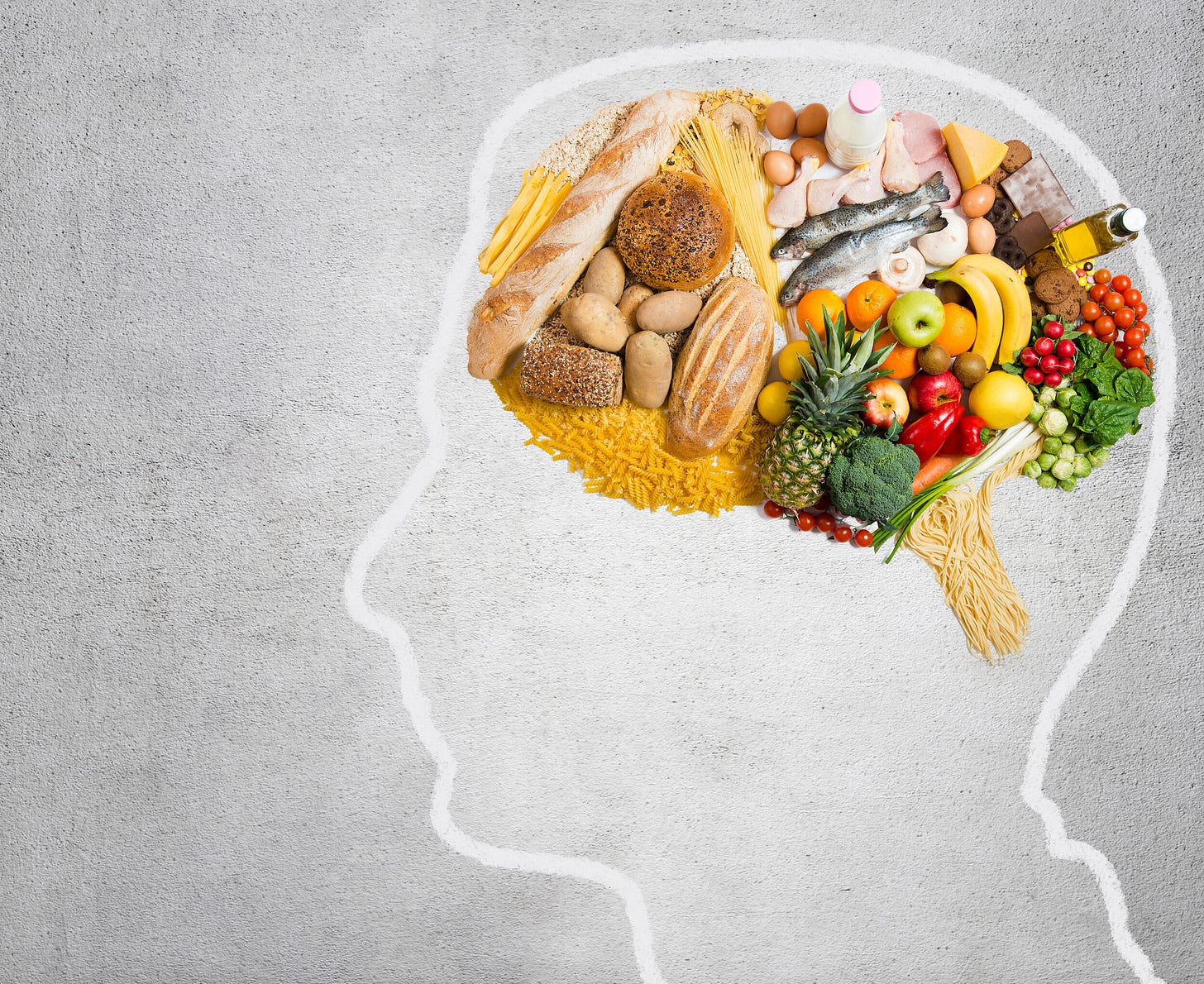Resource: Nutritional Psychiatry and Mental Health Recovery
How we heal...
This post is part of the accompanying tips, resources, interviews with experts, and stories of recovery included in the exclusive serialization of Cured: The Memoir.
Nutritional Psychiatry
Our physical health dictates our mental health and vice versa.
We say this. We know this. Yet we continue to separate the two.
To change all that, welcome nutritional psychiatry, a branch of medicine devoted to exploring how food and our eating habits affect our mental health. As a discipline, it’s in its infancy. Before 2009, aside from a couple of stray omega-3-and-depression speculations, few controlled studies examined the link between diet and mental health.
Nutritional psychiatry doesn’t focus on how a single food or nutrient can make our mental health better or worse because we don’t consume anything in isolation, and they all interact. It looks at the roles and effects of the metabolic system, intestinal permeability (‘leaky gut’), gut microbiota, inflammation, and other mechanisms on mental health.
Nutritional psychiatry isn’t the answer—or I should say that it doesn’t have the answer. Diet studies are notoriously difficult to conduct. Methodology in such studies is problematic. Many rely on very small sample sizes. Thus far, most haven’t shown a causal relationship between diet and mental health. They haven’t established which mechanisms are at play in which disorders or moods. Much of the data is inconclusive and contradictory.
Still, nutritional psychiatry is an incredible resource, one that encourages us to examine how what we consume may, in fact, be causing our mental and emotional distress.
Drew Ramsey
Dr. Drew Ramsey, M.D. (not to be confused with the media-personality internist Dr. Drew) is perhaps the leading proponent of Nutritional Psychiatry. An assistant clinical professor of psychiatry at Columbia University College of Physicians and Surgeons and the founder of the Brain Food Clinic in New York City, he’s brilliant and genuine and not one of those people who’s asking you to have a perfect diet of foods that taste like sandpaper to improve your mental health.
His books are readable and realistic in terms of what they ask us to do to attain health.
Eat Complete: The 21 Nutrients that Fuel Brain Power (he writes about the nutrients as part of an overall diet)
Eat To Beat Depression and Anxiety: Nourish Your Way to Better Mental Health in Six Weeks
50 Shades of Kale: 50 Fresh and Satisfying Recipes That Are Bound to Please (has there ever been a better book title—ever?)
Dr. Ramsey recommends healthy diets (those high in nutrient-dense plant-based foods and quality sources of protein) versus, well, what Americans consume: processed foods, lots of refined sugar, empty calories (e.g., soda, sports drinks), low-quality meats (e.g., lunch meat), and few vegetables. He isn’t trying to sell you a powder or supplement, which, although many in the “wellness” industry may want it to be otherwise, isn’t the key to mental wellness. (That said, I do want to give a shoutout to vitamin D for anyone experiencing depression.)
I’m a huge fan of Dr. Ramsey’s and will listen to just about any podcast he’s on. Watch his other videos, too.
The Brain Food Clinic
One of the best parts of Dr. Ramsey’s Brain Food Clinic is that it isn’t about perfection. It’s about eating better—that’s it. That’s all we have to do.
The clinical team treats a range of mental, emotional, and physical issues:
Depression
Anxiety
Irritability
Insomnia
Bipolar disorder
Brain fog
Poor concentration
Low energy
Food allergies and intolerances
Celiac disease & gluten sensitivity
It’s personalized treatment, which is key to mental health recovery, that includes consultations and evaluations, coaching, and medication management.
Readers like you make my work possible. Support independent journalism by becoming a paid subscriber for $30/year, the equivalent price of a hardcover book.
Visit the Table of Contents and Introduction of Cured:
Find more resources for mental health recovery.
Read the prequel to ‘Cured,’ ‘Pathological’ (HarperCollins):





I love the information, but it really only helps people that have the resources to make these changes to their diets. Until it's more available, it's not attainable for many people and runs an increased risk of elitist or shaming behavior. "Have you tried eating better and exercising?" is all too familiar.
50 Shades of Kale made me chuckle!